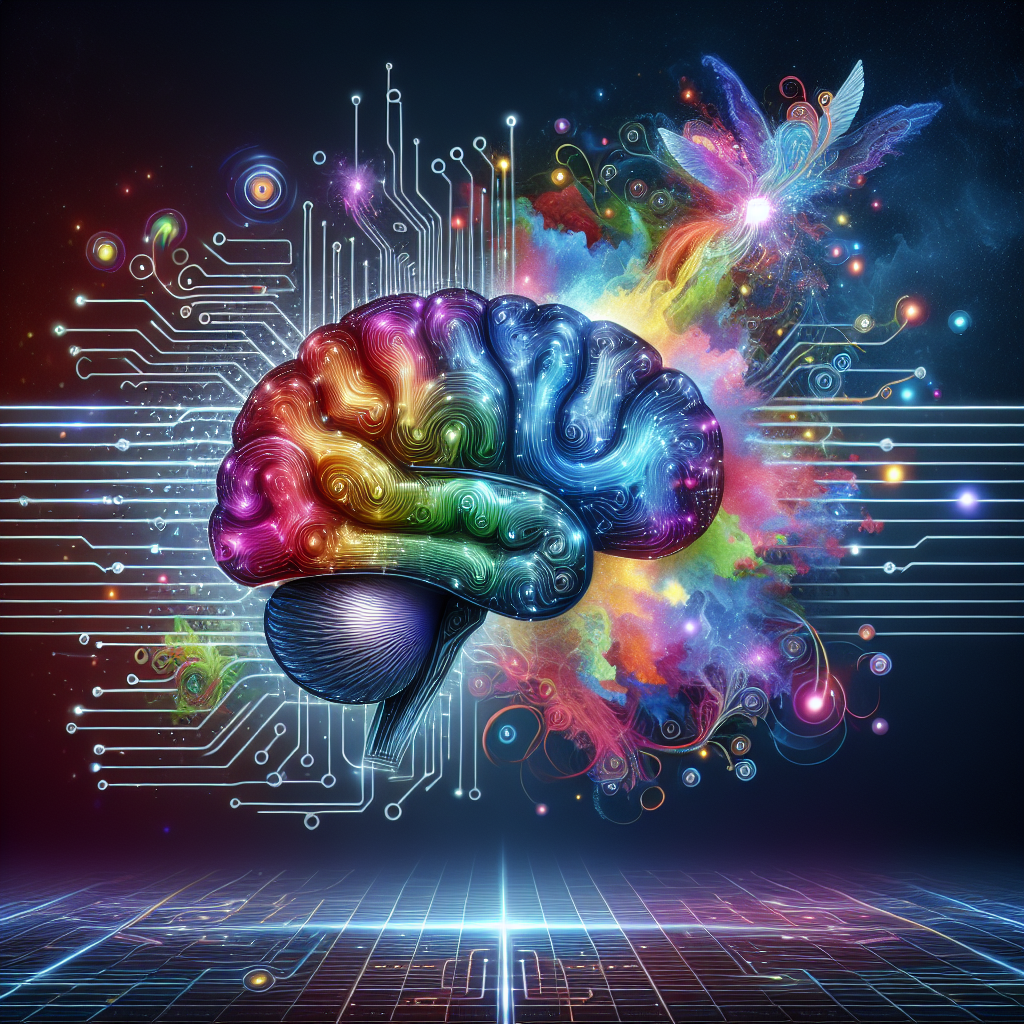Artificial intelligence (AI) has become an increasingly prominent topic in the realm of creativity, sparking debate and discussion about the role of technology in shaping the creative process. While some may fear that AI will replace human creativity, others see it as a tool that can enhance and expand our creative capabilities. In this article, we will explore how AI is redefining the creative vision and the ways in which it is impacting various industries.
The intersection of AI and creativity has given rise to new possibilities and opportunities for artists, designers, and creators across various fields. AI algorithms are being used to generate art, music, literature, and even fashion designs, challenging traditional notions of creativity and pushing the boundaries of what is possible. By analyzing vast amounts of data and identifying patterns, AI can generate new ideas and concepts that may not have been considered by human creators.
One of the key benefits of AI in the creative process is its ability to automate repetitive tasks, allowing creators to focus on more complex and innovative aspects of their work. For example, AI-powered tools can help graphic designers create logos and branding materials, assist musicians in composing music, and even generate scripts for movies and television shows. This automation frees up time and mental energy for creators to experiment, iterate, and push the boundaries of their creativity.
AI is also revolutionizing the way we interact with art and media. Virtual reality (VR) and augmented reality (AR) technologies are being used to create immersive experiences that blur the lines between the physical and digital worlds. AI algorithms can analyze user behavior and preferences to personalize content, creating more engaging and tailored experiences for audiences. These technologies are changing the way we consume and engage with art, music, and other forms of creative expression.
In addition to enhancing the creative process, AI is also redefining the way we think about creativity itself. By challenging our preconceived notions of what it means to be creative, AI is forcing us to reconsider the role of human agency in the creative process. Can a machine truly be creative, or is it merely mimicking human creativity? These questions are at the heart of the debate surrounding AI and creativity, with proponents and detractors offering differing perspectives on the nature of creativity and the role of technology in shaping it.
Despite the potential benefits of AI in the creative process, there are also concerns and challenges that must be addressed. One of the main concerns is the potential for AI to replace human creators, leading to job displacement and a loss of creative autonomy. While AI can assist in generating ideas and concepts, it lacks the emotional intelligence and intuition that are essential components of human creativity. As such, it is important for creators to strike a balance between leveraging AI tools and maintaining their unique creative vision and voice.
Another challenge is the ethical implications of AI-generated content. As AI algorithms become increasingly sophisticated, there is a risk that they may produce content that is biased, offensive, or harmful. It is crucial for creators to be mindful of the ethical implications of using AI in their work and to ensure that their creations are respectful and inclusive of all individuals and communities.
In conclusion, AI is redefining the creative vision by expanding the possibilities of what is achievable in art, design, music, and other creative fields. By automating repetitive tasks, personalizing content, and challenging traditional notions of creativity, AI is opening up new avenues for innovation and experimentation. While there are concerns and challenges that must be addressed, the potential benefits of AI in the creative process are vast and exciting. As we continue to explore the intersection of AI and creativity, it is essential for creators to embrace new technologies while also maintaining their unique creative vision and voice.
FAQs:
Q: Can AI truly be creative?
A: While AI can generate ideas and concepts, it lacks the emotional intelligence and intuition that are essential components of human creativity. It is important to recognize the limitations of AI in terms of creativity and to maintain a balance between leveraging AI tools and preserving human creativity.
Q: How can AI enhance the creative process?
A: AI can automate repetitive tasks, analyze data to identify patterns and trends, and personalize content to create more engaging and tailored experiences for audiences. By freeing up time and mental energy for creators to focus on more complex and innovative aspects of their work, AI can enhance the creative process and open up new possibilities for experimentation and innovation.
Q: What are the ethical implications of using AI in the creative process?
A: There is a risk that AI algorithms may produce biased, offensive, or harmful content. It is important for creators to be mindful of the ethical implications of using AI in their work and to ensure that their creations are respectful and inclusive of all individuals and communities. It is also crucial to consider the impact of AI on job displacement and creative autonomy in the creative industry.
Q: How can creators strike a balance between leveraging AI tools and maintaining their unique creative vision?
A: Creators can strike a balance by using AI as a tool to enhance and expand their creative capabilities, rather than as a replacement for human creativity. By embracing new technologies while also preserving their unique creative vision and voice, creators can leverage the benefits of AI while maintaining their creative autonomy and integrity.

